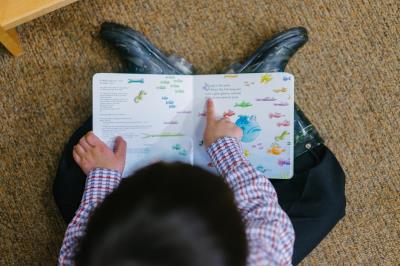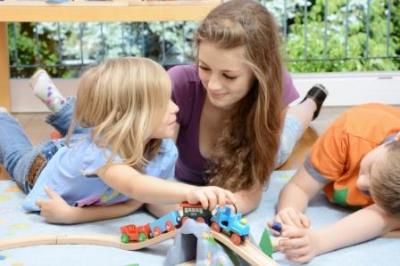Unit 1: Growth and Development of Young Children
- Patterns and stages of growth for children from birth to 5 years 11 months
- Factors which influence growth and development from birth to 5 years 11 months
- Importance of diet and exercise for children's growth and development
- Activities which promote children's physical development
- Ways to help children to develop communication and language skills
- Ways to encourage children to play socially
Unit 2: Practical Health and Safety when with Young Children
- Health and safety guidance, symbols or instructions on young children's equipment and toys
- Health and safety instructions on cleaning materials which may be found in a house
- Health and safety rules, guidelines or instructions when taking children out into the street and to the park
- Potential hazards to young children in the home
- Safety features to ensure young children stay safe in the home
- Safety equipment or controls which help to keep young children safe when going out for a walk, when in a car and when in a children’s playground
- Fire safety equipment that is recommended to be in a house
- Possible fire hazards to young children and adults in a house
- Own actions to maintain a young child’s safety if there was fire in the house
Unit 3: Respecting and Valuing Children
- Ways to value children as individuals
- Reasons why children need to be respected as individuals
- Ways to communicate with children to ensure that they feel valued
- Behaviour that shows respect and value of children
- Organisations that promote the rights of children
Unit 4: Understanding Learning and Development Through Play
- Features of a setting that contribute to a positive learning environment
- How these features might help children to learn through the use of play activities and strategies
- Ways in which play can help children’s learning in developmental areas
- Example of stereotyping in play
- How a given set of materials, resources or activities can challenge stereotyping and discrimination
Unit 5: Confidence Building for the Young Child Through Play
- Understand the support children need to gain confidence when playing
- Activities that will help improve a young child's confidence
- Learn to encourage expression through play
- How interaction and play can build self-esteem
- Activities that will help children to express their feelings
Unit 6: Sharing Learning Experiences with Children
- The different ways that young children learn
- Understanding the importance of identifying the different ways of learning
- Sensory aids to develop the learning of young children
- How to encourage young children to take part
- Ways in which the natural world can support learning
Unit 7: Self-Development
- Why self-development and interest is important
- How self-development contributes to personal achievement
- Encouraging self-development, weaknesses and strengths
Unit 8: Science Activities for Young Children
- Recommend science activities for young children of different ages
- Understand why science activities support learning
- Learn the health and safety risks with science activities
- Help and advise young children with science activities
Unit 9: Technology Activities for Young Children
- Recognise activities and toys within technology for young children
- Understand which technology activities are suitable for each age range
- Identify intellectual, physical and language benefits of technology activities
Unit 10: Musical Activities for Young Children
- Creative musical activities and games for young children
- Understand which musical activities are suitable for each age range
- Identify benefits of musical activities
- Encourage interaction within musical games and activities






